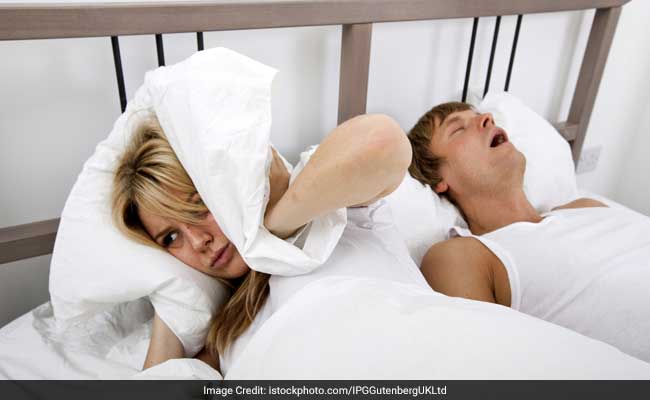World Sleep Day 2018: Sleep apnea is chronic and can definitely be treated.

World Sleep Day 2018: Things you must know about sleep apnea
HIGHLIGHTS
- Sleep apnea is actually quite common and chronic
- Sleep apnea significantly increases your risk of stroke
- 30% of people with sleep apnea are not obese
Many people treat snoring as a joke or something to feel embarrassed about. But loud snoring-especially when accompanied by daytime fatigue-may be a sign of sleep apnea, a common disorder in which breathing repeatedly stops and starts as you sleep. Sleep apnea is actually quite common- in fact, there are more than ten million cases per year in India itself. It can leave you feeling exhausted, harm your health, and affect your relationship and mood with your bed partner as well. While it is chronic, it can be treated.
Also read: Start Sleeping Naked, It Is Healthy!
Here are eight other important things to know about sleep apnea:
1. Sleep apnea significantly increases your risk of stroke. 50% of all stroke victims have sleep apnea.
2. Sleep apnea causes insulin resistance and as a result may cause or worsen diabetes.
3. If you have PCOS (Polycystic Ovary Syndrome) your chances of having sleep apnea is greater than 50%.
4. If you have insomnia with frequent awakenings, it may be because you have sleep apnea.
5. It is important to realise that sleep apnea can present happen in numerous ways. In fact, some studies show that over 25% of patients did not even snore!
6. There exists more than one kind of sleep apnea. Obstructive sleep apnea (OSA) is the most common type, and occurs when the muscles in your throat become blocked ("obstructed") while you sleep. Central sleep apnea, happens when there's a disconnect between your brain and muscles. As a result, your brain doesn't send the correct signals to the muscles that control your breathing. Sometimes obstructive and central sleep apnea can occur at the same time, which is called complex sleep apnea syndrome.
Also read: The Top 3 Sleeping Positions And Their Health Repercussions; Which One Is Yours?
7. Obesity is a major risk factor. But, you don't have to be an obese man to have sleep apnea. 30% of people with sleep apnea are not obese, and after menopause, women's rates of sleep apnea approximate men's.
8. Other factors that may up your risk of obstructive sleep apnea: having naturally larger tonsils or narrow airways, having a family member with sleep apnea, smoking, alcohol, and nasal congestion.
DoctorNDTV is the one stop site for all your health needs providing the most credible health information, health news and tips with expert advice on healthy living, diet plans, informative videos etc. You can get the most relevant and accurate info you need about health problems like diabetes, cancer, pregnancy, HIV and AIDS, weight loss and many other lifestyle diseases. We have a panel of over 350 experts who help us develop content by giving their valuable inputs and bringing to us the latest in the world of healthcare.














